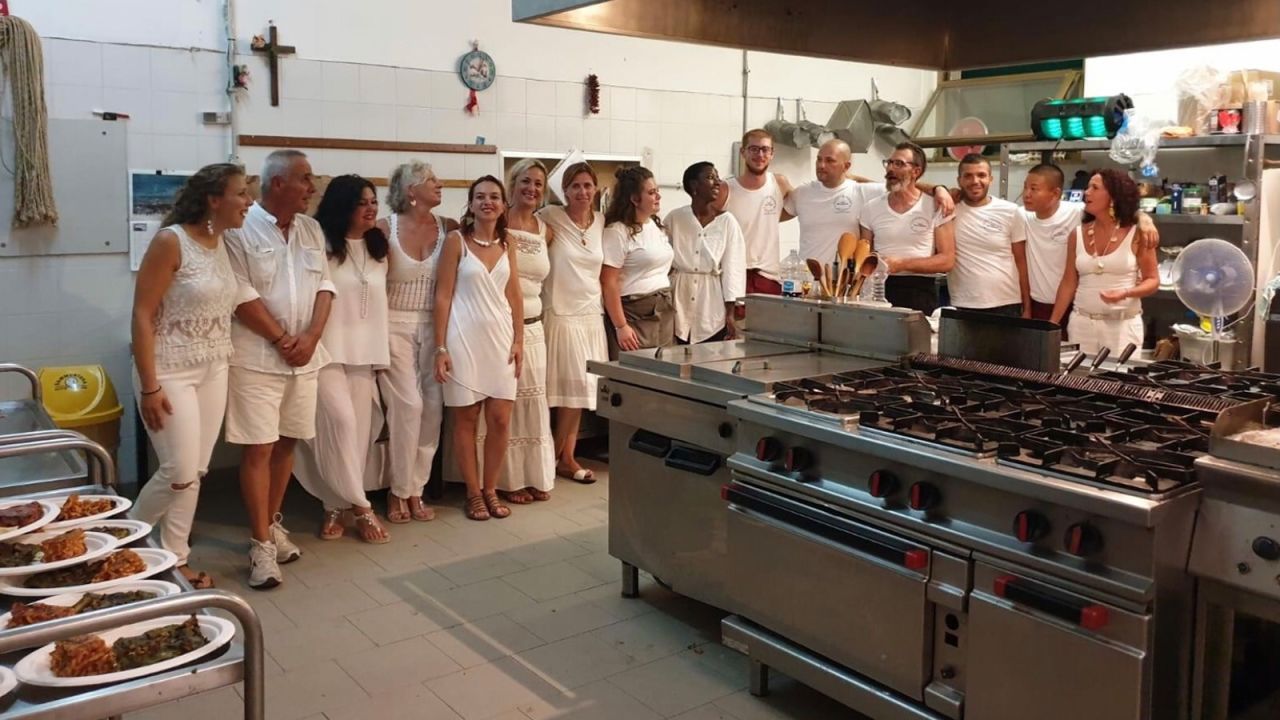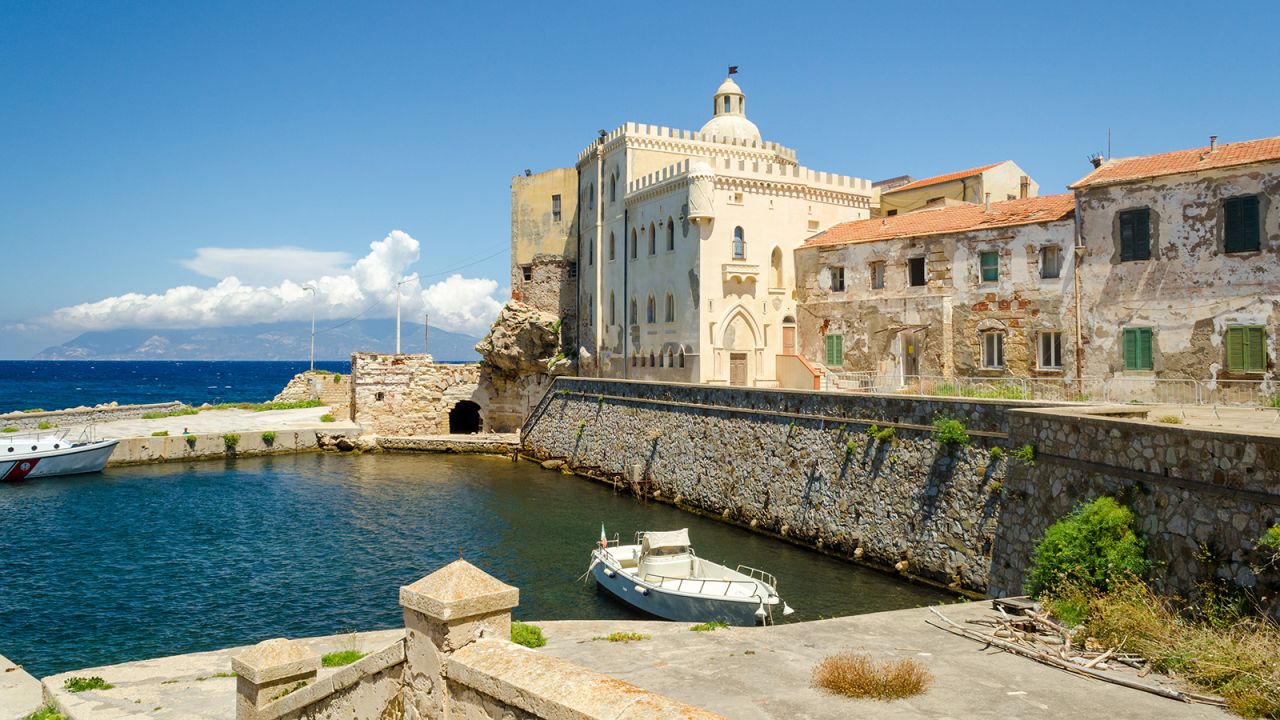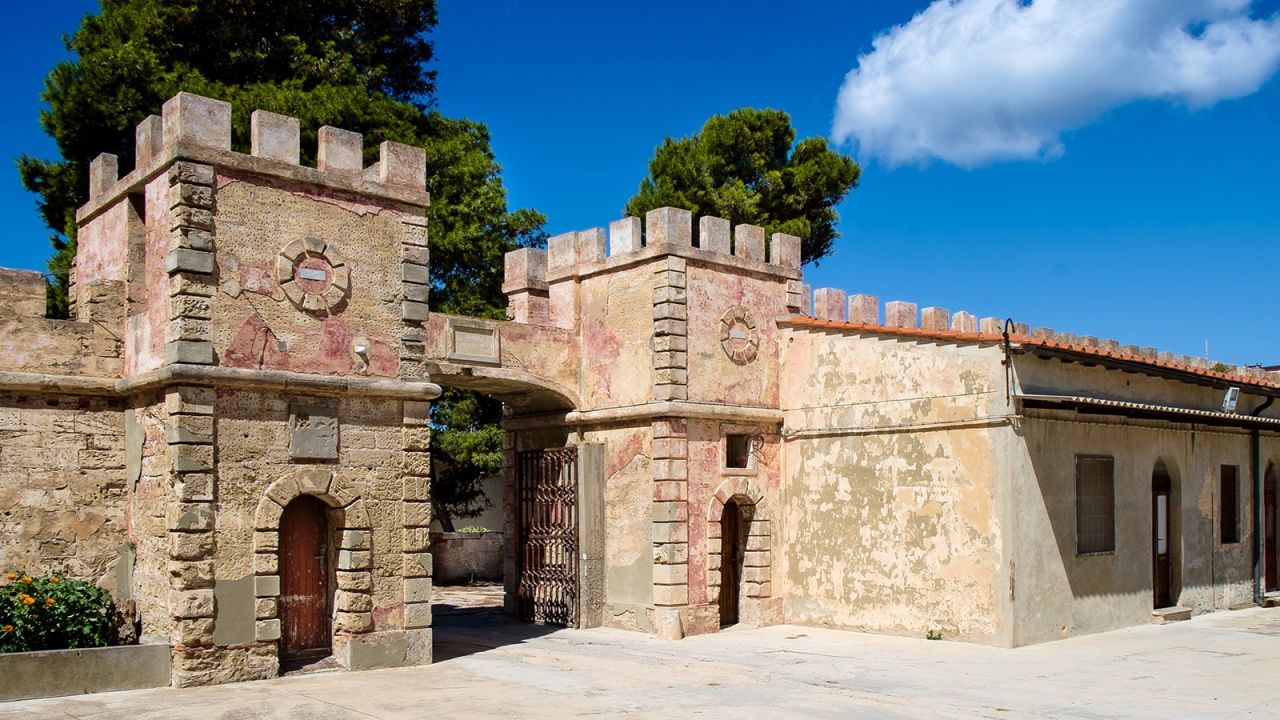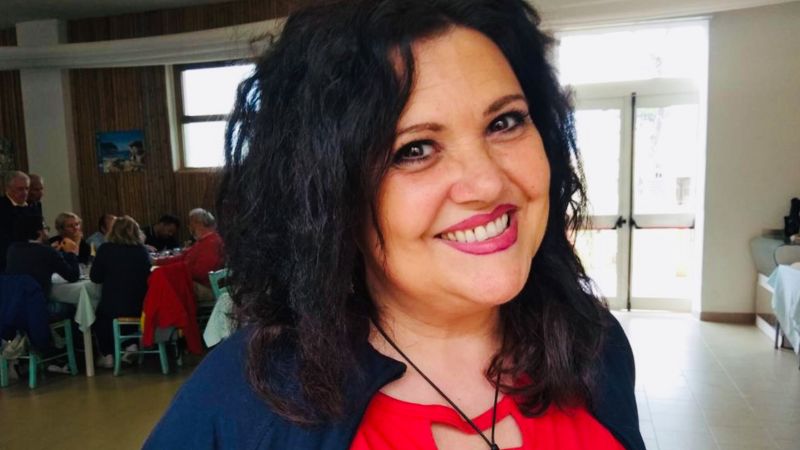CNN
—
When Giulia Manca traveled to Pianosa, a former Italian prison island, back in 2011, she was looking forward to a relaxing sunshine break before returning home.
But 12 years after checking into the beachfront Hotel Milena, which is staffed by supervised convicts on probation, Manca has remained on the island known as the Alcatraz of the Tyrrhenian Sea.
Now the only woman living in the ghost village of Pianosa, part of Tuscany’s archipelago marine park, Manca serves as both the manager of the hotel and supervisor of the island’s rehabilitation program, run by Arnera, a nonprofit organization with the social mission of helping vulnerable people such as inmates get back into society, and Tuscany’s prison authorities.
“I stayed one week at the hotel and didn’t want to leave,” Manca tells CNN. “It was a unique holiday and the rehab project fascinated me, how these inmates were given a second chance in life.

“I fell in love with Pianosa. Its silence, the turquoise clear paradise-like sea, the peaceful starry nights.”
Once nicknamed the Devil’s Island, Pianosa, located between Corsica and the mainland, is now a blissful retreat beloved for its beautiful beaches and lush green vegetation.
One of just two of the island’s permanent residents, Manca lives and works alongside a jail guard, as well as 10 male convicts, who work as cooks, gardeners, waiters, beach cleaners and dishwashers at Hotel Milena, the only accommodation facility on the island.
Surrounded by pine trees, Hotel Milena features frescoed ceilings, and holds 11 rooms with wooden furniture and a stunning sea view, as well as a large patio, where inmates serve evening drinks to guests, a restaurant and a bar.
Manca had been a guest at the unique hotel, which is open year-round, for just a few days when the then-manager informed her that the establishment was struggling financially and at risk of closure.
If this were to happen, the detainees would have to be transferred back to jail, putting a swift end to their time on Pianosa.
“I felt I had to do something to help them or they would have gone back behind bars, inside tiny cells with no chance of a fresh start and of learning a job that can help them once they’re released,” adds Manca, who previously worked as a tourist agent.
Manca, who grew up in Tuscany, decided to stay on and take over as hotel manager. She says she initially worked for free, using her management skills to help to secure the hotel’s future.
In just a few years, Manca was able to turn things around significantly, and Hotel Milena has become a popular wedding and birthday party venue, with guests, partly lured by the hotel’s unconventional staff set up, flocking here.

Situated close to Gorgona, another Italian prison island, Pianosa was set up during the 1700s to confine outlaws, bandits and revolutionaries.
The island served as the base for a maximum security prison up until 1998, when the prison was shut down. Its few residents eventually departed and Pianosa was left deserted for many years.
Visitors were not permitted on the island until relatively recently, and those who do visit can only come as part of an organized boat tour that must be booked via specific tour operators.
In order to be admitted onto the rehabilitation program at Hotel Milena, applicants must have already served at least one-third of their sentence in jail and undergone a series of strict psychological and social evaluation tests.
Over the past 12 years, Manca has dealt with around a hundred offenders on probation for a multitude of crimes, including murder.
Although she notes that many of the inmates have been convicted for far more than “stealing daisies,” Manca has always felt comfortable on the island and considers it to be something of a safe harbor.
She also feels strongly that former offenders should be given the chance to contribute to society rather than spend more time behind bars.
“I believe in the power of redemption and that even offenders should be given a second chance, they shouldn’t rot behind bars but be actively involved in rehab tasks,” she says. “I like to see them return to life through work.”
Known as the “Queen of Pianosa,” Manca admits that her job has raised eyebrows among her friends and loved ones due to the perceived risks of being the only woman alongside a group of convicts.
“People kept saying I was mad to take on such a job,” says Manca, who is also a member of Arnera. “To be the only woman to work and live side-by-side with male offenders who haven’t been accused of light crimes.
“But I’ve never felt scared nor worried. I’ve never given it a second thought. I feel safer with them here than back in the city with all those crazy people running around, you never know who you might bump into.”
While being in charge of a group of offenders has its challenges, Manca says she does her best to create clear boundaries to ensure that the rehabilitation program is effective.
She explains that her relationship with her staff is one of reciprocal respect, and she’s been able to strike a balance by keeping her distance, and being authoritative yet open, in order to support them.
Each week, Manca hops on the ferry for a three-hour sea journey to mainland Tuscany to run errands and bureaucratic affairs, leaving at dawn and returning to Pianosa at night.
Manca points out that, unlike nearby Gorgona, where convicts must return to their cells after they clock off , those on Pianosa are allowed to roam free.

The inmates here are paid a monthly salary for their hotel jobs, and stay in the former old jail quarters, which have been restyled into cozy studios, with a gym, a TV, a kitchen and private rooms with bathrooms.
They are also given mobile phones so that they can keep in touch with their families.
Italian jails are considered to be among the most inhumane and overcrowded in Europe, with 120 inmates for every 100 beds, according to a 2020 report by the Council of Europe, while in-jail suicide up 300% since 1960, with a 75% relapse into crime.
Therefore, Pianosa is undoubtedly a far more attractive alternative for those nearing the end of their sentence.
Manca is proud of the success of the “Pianosa model,” explaining that the rate of those who’ve spent time on the island returning to crime has reduced to 0.01%.
“In the evenings they’re free to go down to the beach and take a dip,” explains Manca.
“However, they must leave their lodgings early in the morning and return at a specific time in the evening, they’re still under supervision and there is the guard who keeps an eye on them.
Offenders can serve the remainder of their sentence working at the hotel if they behave well, and some have spent five to ten years here.
But those who do not demonstrate a willingness to change risk being sent back to prison to complete the rest of their sentence.
“They have all served at least one-third of their sentence in jail and undergone strict psychological and social evaluation tests to determine they’re no longer dangerous and fit for the rehab program, [and] that they truly regret what they did,” adds Manca.
“They must demonstrate each day their willingness to work and prepare for a better life. I accept no slips.”
Manca likes to keep in touch with those who have left Pianosa to start a new life, putting to use the skills they learned on the isle, via social media.
She explains that a few have gone on to become councilors for prisoners in other jails after working at the hotel.
Manca is hugely proud of her role in the process and says that those who were initially dubious about her decision to remain in Pianosa all those years ago have now come around.
“Even my daughter Yolanda, who as a kid was a bit skeptical of my job, has come to appreciate the isle and understand the importance of what I do, and now tells me I’m a lucky person,” says Manca.
